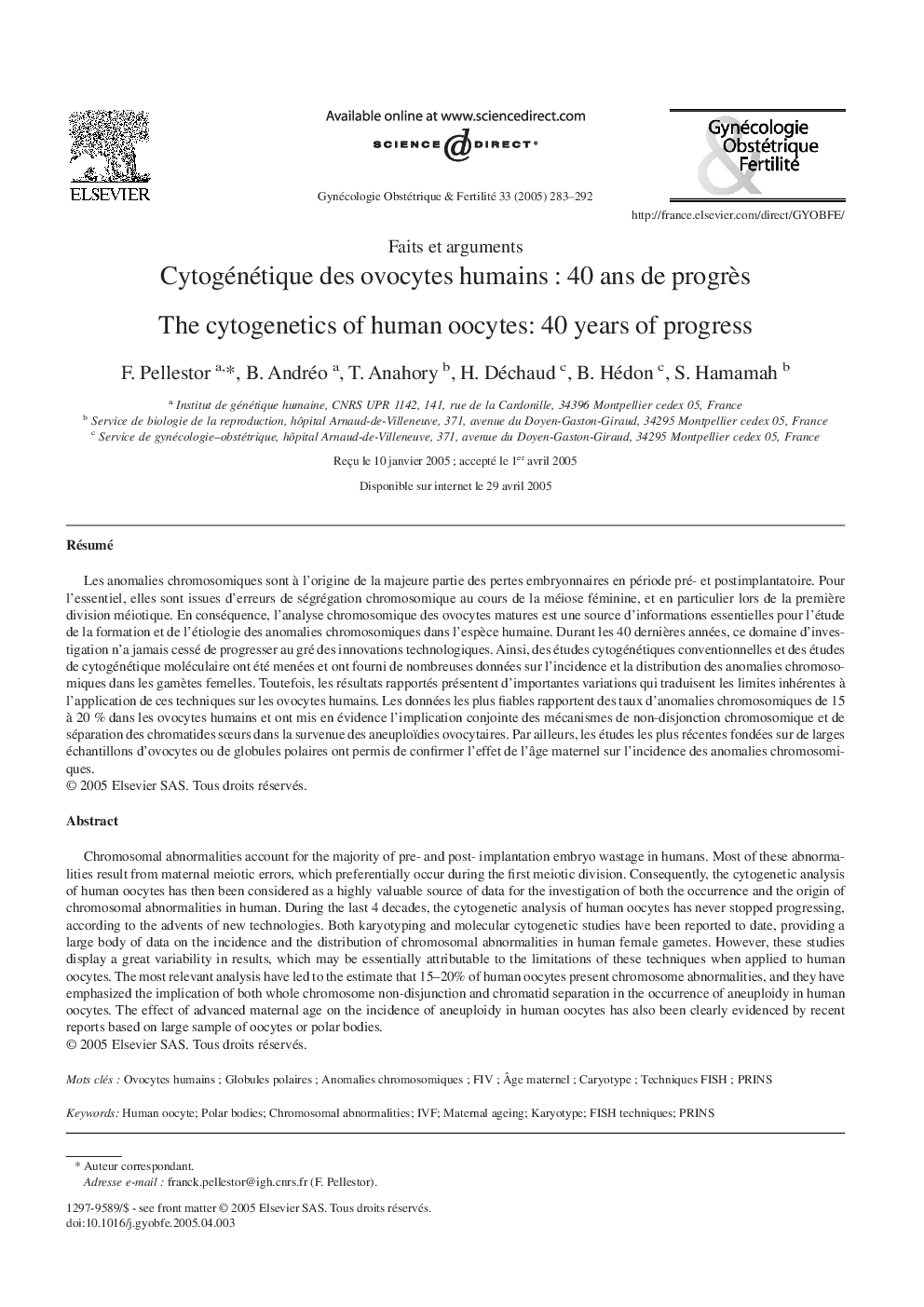| Article ID | Journal | Published Year | Pages | File Type |
|---|---|---|---|---|
| 9328872 | Gynécologie Obstétrique & Fertilité | 2005 | 10 Pages |
Abstract
Chromosomal abnormalities account for the majority of pre- and post- implantation embryo wastage in humans. Most of these abnormalities result from maternal meiotic errors, which preferentially occur during the first meiotic division. Consequently, the cytogenetic analysis of human oocytes has then been considered as a highly valuable source of data for the investigation of both the occurrence and the origin of chromosomal abnormalities in human. During the last 4 decades, the cytogenetic analysis of human oocytes has never stopped progressing, according to the advents of new technologies. Both karyotyping and molecular cytogenetic studies have been reported to date, providing a large body of data on the incidence and the distribution of chromosomal abnormalities in human female gametes. However, these studies display a great variability in results, which may be essentially attributable to the limitations of these techniques when applied to human oocytes. The most relevant analysis have led to the estimate that 15-20% of human oocytes present chromosome abnormalities, and they have emphasized the implication of both whole chromosome non-disjunction and chromatid separation in the occurrence of aneuploidy in human oocytes. The effect of advanced maternal age on the incidence of aneuploidy in human oocytes has also been clearly evidenced by recent reports based on large sample of oocytes or polar bodies.
Related Topics
Health Sciences
Medicine and Dentistry
Obstetrics, Gynecology and Women's Health
Authors
F. Pellestor, B. Andréo, T. Anahory, H. Déchaud, B. Hédon, S. Hamamah,
